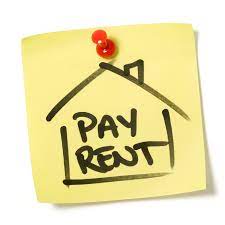
Divorce can be a difficult process that can take a toll on both parties involved. It is made even more challenging if there is a need to divide up property that was acquired during the marriage. If you are going through a divorce in Nigeria and have questions about the sharing of property after divorce, this blog post will help you understand your rights and what to expect.
We will cover seven key things that you need to know about sharing of property after divorce in Nigeria, including how to identify what is marital property, how to make an equitable division of assets, and how to protect your rights throughout the process.
1) The law does not favour either party in a divorce
Divorce can be a stressful and emotional time for both parties involved. When it comes to sharing property after a divorce in Nigeria, it's important to understand that the law does not favour either party. The division of property is done in a fair and just manner, taking into consideration the individual circumstances of each party.
In Nigeria, all property acquired during the marriage is considered joint property. This includes property acquired by one party or both parties, as well as any debts or liabilities incurred during the marriage. When it comes to dividing property, the court will take into consideration the needs of both parties, as well as their respective contributions to the acquisition of the property.
It's important to note that the court will not automatically award property to the party who contributed more financially. The contribution of each party will be considered, including non-financial contributions such as taking care of the household and children. The court will also take into account the future earning capacity and financial needs of each party.
Ultimately, the court will aim to achieve a fair and equitable division of property, taking into consideration the unique circumstances of each case. It's important to seek legal advice if you are going through a divorce and need assistance with the division of property. With the help of an experienced lawyer, you can ensure that your rights are protected and that the property division is done in a fair and just manner.
2) All property acquired during the marriage is considered joint property
When a marriage ends in divorce, one of the most important aspects to consider is the sharing of property. In Nigeria, the law states that all property acquired during the marriage is considered joint property. This means that both parties have equal rights to any assets that were accumulated during the course of the marriage.
It is important to note that this includes all types of property, including real estate, bank accounts, cars, and investments. Even if one party made a greater contribution to the acquisition of a particular asset, it is still considered joint property under the law.
This concept of joint property can sometimes lead to disputes during divorce proceedings, especially when one party feels entitled to a larger share of the assets. However, it is important to remember that the law does not favour either party in a divorce, and the court will always strive to divide property in a fair and equitable manner.
It is also worth noting that joint property can include any debts or liabilities that were accumulated during the course of the marriage. This means that both parties are equally responsible for any outstanding loans or financial obligations, even if only one party incurred the debt.
Overall, understanding the concept of joint property is essential when navigating a divorce in Nigeria. It is important to consult with a legal professional who can help you navigate the complexities of property division and ensure that your rights are protected throughout the process.
3) The court will take into consideration the needs of both parties when dividing property
When it comes to dividing property after a divorce in Nigeria, the court will consider the needs of both parties involved. This means that the court will look at various factors such as the standard of living each party had during the marriage, their respective ages, and the health of each party.
The aim is to ensure that both parties are able to live a decent life after the divorce. For instance, if one party had been a stay-at-home parent throughout the marriage and has no means of income after the divorce, the court may order the other party to provide support in the form of alimony.
Similarly, if one party had been earning significantly less than the other, the court may take that into consideration when dividing property. The party who earns less may need to receive a larger share of the property to ensure that they can continue to maintain the same standard of living they had during the marriage.
In summary, the court will aim to divide property in a way that is fair and equitable to both parties, taking into consideration their needs and individual circumstances. It is important to have a good understanding of your rights and the laws that apply in your specific case to ensure that you are able to secure a fair settlement in the event of a divorce.
4) The court will also take into consideration the contribution of each party to the acquisition of property
When it comes to dividing property during a divorce in Nigeria, the court will take into consideration the contribution of each party to the acquisition of property. This means that if one party contributed more to the acquisition of property, they may be entitled to a larger share of the property.
For example, if one party provided the majority of the financial resources to purchase a family home, they may be entitled to a larger share of the property than the other party. On the other hand, if one party contributed more in terms of non-financial resources such as taking care of the home and children, they may be entitled to a larger share of the property as well.
It's important to note that the court will consider both financial and non-financial contributions equally. This means that if one party stayed home to take care of the children while the other party worked and brought in the income, both contributions will be considered equally important when dividing property.
In addition, if one party can prove that they acquired certain property before the marriage or through inheritance, they may be entitled to keep that property without having to divide it with their former spouse.
Overall, the court will look at all the facts and circumstances of each case to determine a fair division of property that takes into consideration the contributions of both parties. It's important to have a clear understanding of your rights and options when going through a divorce in Nigeria.
5) The court may order one party to pay alimony to the other
Alimony is financial support paid by one spouse to another after a divorce. The purpose of alimony is to provide financial support to the party who may be in need of it, especially if one spouse earns significantly more than the other. The court will take into consideration the needs of both parties, and the standard of living they enjoyed during the marriage, before deciding whether or not to award alimony.
The amount of alimony awarded will depend on a number of factors such as the earning capacity of both parties, the length of the marriage, and the lifestyle enjoyed during the marriage. In some cases, alimony may be temporary, until the party receiving the support is able to support themselves financially. In other cases, alimony may be permanent.
It is important to note that alimony is not automatic in Nigeria. The party seeking alimony must prove to the court that they have a genuine need for financial support, and that the other party is in a position to provide it. The court will take into consideration all relevant factors before making a decision.
It is also important to note that failure to pay alimony as ordered by the court can result in legal consequences. It is therefore important for both parties to comply with any orders issued by the court.
6) The court may order the sale of property and the division of the proceeds
In some cases, the court may order that property be sold and the proceeds divided between both parties. This may occur if there is a need to raise funds for either party, or if both parties agree that it is in their best interests to sell the property. The court will typically appoint a trustee to manage the sale of the property and ensure that the proceeds are divided fairly between both parties.
It's worth noting that the court will take into consideration the contributions of both parties to the acquisition of the property before ordering a sale. If one party has made significant contributions, the court may be less likely to order a sale, or may order that the other party compensates them for their contributions before a sale is made.
If a property is sold, the proceeds will typically be divided in a way that is fair and just to both parties. This may involve taking into consideration the value of any other property that each party may own, as well as any debts that may be owed.
It's important to remember that if you're going through a divorce in Nigeria, the court will always aim to achieve a fair and just outcome for both parties. If you're unsure about how your property will be divided, it's always best to seek the advice of a legal professional. They will be able to guide you through the process and ensure that your rights are protected.
7) The court may order one party to transfer property to the other
In some cases, the court may order one party to transfer property to the other as part of the divorce settlement. This can happen if one party contributed more significantly to the acquisition of the property, or if one party needs the property more than the other.
For example, if the family home was purchased using funds from one party's inheritance, the court may order that the other party transfer their interest in the property to the first party. This ensures that the first party is able to keep the property that they had a greater role in acquiring.
Alternatively, if one party has a greater need for a particular property, the court may order that the other party transfer their interest in the property to them. This could happen if one party has custody of the children and needs a larger home, or if one party has a greater need for a specific asset like a vehicle.
If one party is ordered to transfer property to the other, it's important to ensure that the transfer is properly documented and legally binding. This can help avoid future disputes over the ownership of the property.
Overall, while the division of property during a divorce can be a difficult process, it's important to remember that the court will take into consideration the needs of both parties when making its decision. By understanding your rights and working with experienced legal professionals, you can ensure that your interests are protected throughout the divorce process.




















